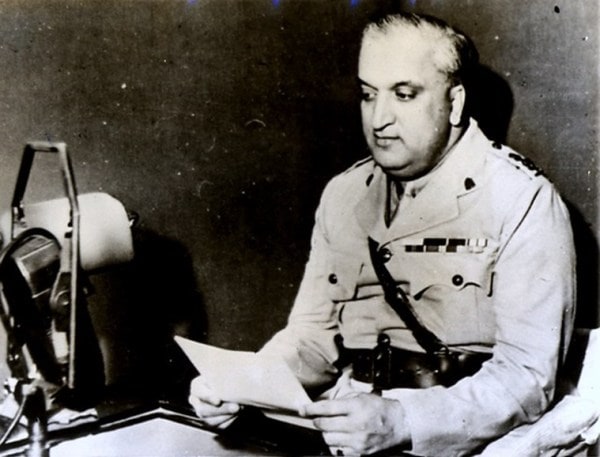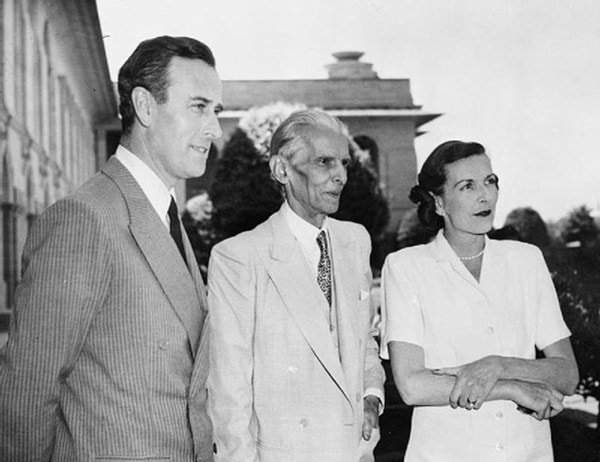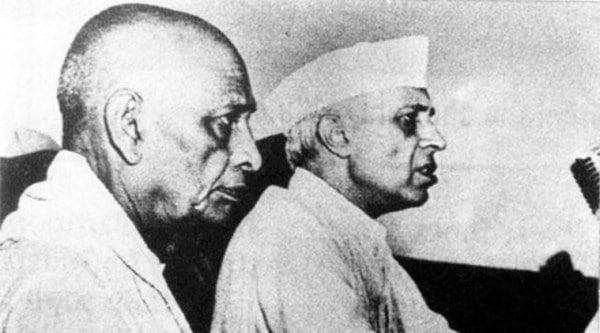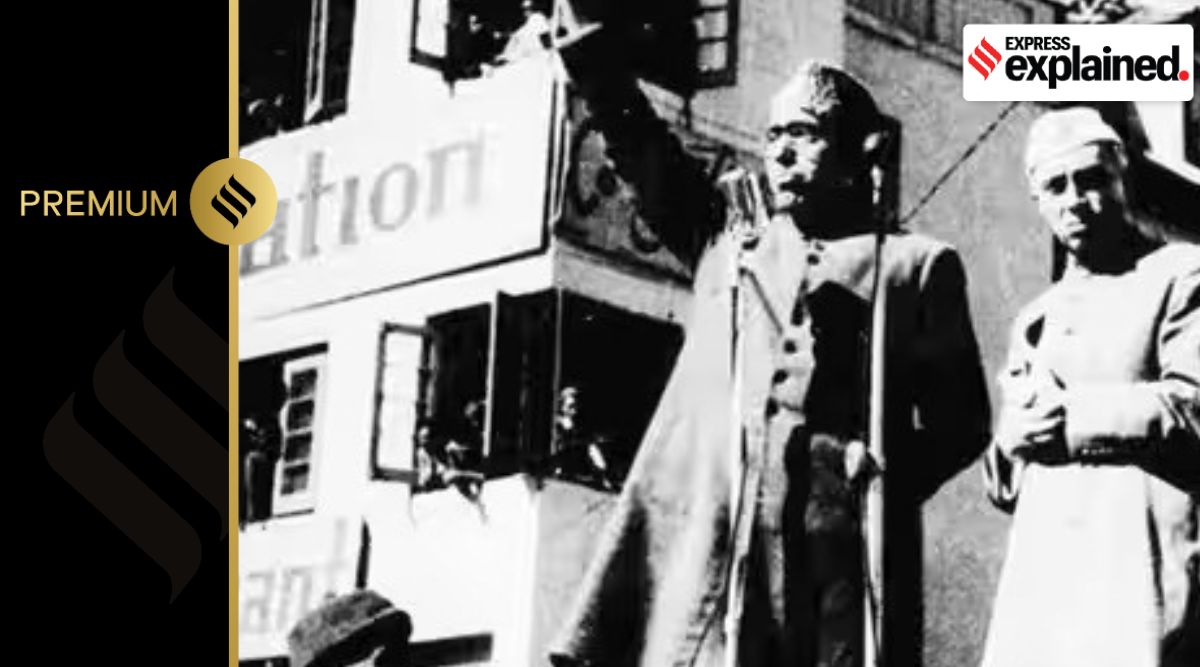The Supreme Court is hearing a batch of petitions against the scrapping of Article 370 of the Constitution, which gave the state of Jammu and Kashmir special status in the Union of India.
How and why this ‘special status’ came about has been the cause of enduring controversy and bloodshed within India and in its relations with neighbouring Pakistan. While the basic contours of the Kashmir story are well-known — Maharaja Hari Singh’s doomed decision of staying independent after Partition; the attack on Kashmir by Pakistani tribesmen; Hari Singh’s accession to India under pressure; and India sending its troops to drive away the raiders — the specifics are shrouded in conspiracy theories and murky political rhetoric.
 Also Read | Expert Weighs In: ‘Blaming Nehru or Gandhi for Partition is an inversion of history’
Also Read | Expert Weighs In: ‘Blaming Nehru or Gandhi for Partition is an inversion of history’
How did Hari Singh’s accession to India come about? Why was the division of Gurdaspur by the Radcliffe Boundary Commission significant? Why did the Kashmir issue end up at the UN? What was the role played by Jawaharlal Nehru and Vallabhbhai Patel? Here’s what verifiable historical facts say.
‘Switzerland of the East’
The princely state of Jammu and Kashmir came into being in March 1846, when the British, under the Treaty of Amritsar after the first Anglo-Sikh War, sold Kashmir for a sum of 7.5 million Nanakshahee rupees to Gulab Singh, the Dogra jagirdar of Jammu.
Maharaja Hari Singh, who was on the throne when India became independent, was descended from Gulab Singh. As the British prepared to withdraw from India after dividing it, the princely states were given the option of joining either India or Pakistan or remaining independent, although the last option was hardly practical. Yet, it was this option that appealed to Hari Singh, with dreams of making Kashmir “completely neutral”, a “Switzerland of the East”.
 Maharaja Hari Singh wanted to remain independent after the British left. (Photo: Wikimedia Commons)
Maharaja Hari Singh wanted to remain independent after the British left. (Photo: Wikimedia Commons)
In June 1947, Viceroy Lord Louis Mountbatten visited Srinagar. He advised Hari Singh’s prime minister to pick either country and accede, but was told the state wanted to remain independent. He also sought a meeting with the king, but was informed at the last moment that Singh was unwell.
A mention here must be made of the Boundary Commission’s decision on Gurdaspur. Geographically, Kashmir was connected to the rest of the subcontinent by three routes: Rawalpindi-Baramula-Srinagar; Sialkot-Jammu-Banihal pass; and a “jeepable” dirt track via Gurdaspur. The Gurdaspur district contained the four districts of Shakargarh, Batala, Gurdaspur and Pathankot. Gurdaspur district had a majority Muslim population, and was expected to go to Pakistan. Had that happened, India would barely have any land connectivity with Kashmir, and Hari Singh’s choice would pretty much have been made for him.
In her book Kashmir in Conflict, British author Victoria Schofield writes, “In the final award the three tehsils of Batala, Gurdaspur and Pathankot went to India. A memorandum prepared by the minister of state… reported that the reason for changing… was because ‘the headwaters of the canals which irrigate the Amritsar District lie in the Gurdaspur District and it is important to keep as much as possible of these canals under one [i.e. Indian] administration.”
Thus, while the motives of the Boundary Commission might have been to avoid complications in Punjab, the award meant Hari Singh still had a practicable way of joining India, and this was seen in Pakistan as the British “unfairly favouring” India.
Also in Explained | Sardar Vallabhbhai Patel’s views on Kashmir problem: What the record says
August 15, 1947 drew nearer, but still Hari Singh refused to accede. What he did propose were ‘standstill agreements’ with both India and Pakistan, which meant that trade, travel and communication services in his sandwiched domain would continue as under the British. Pakistan signed this, but India preferred to wait.
Thus, when India and Pakistan attained independence, Jammu and Kashmir too was technically independent. In a month, this independence came under strain.
By the middle of September, lorries carrying petrol, sugar, salt, clothes, etc. for J&K were being stopped on the Pakistan side of the border, in what some saw as Pakistan creating pressure for accession.
Hari Singh’s accession to India
On September 27, 1947 [India after Gandhi, by Ramachandra Guha], Nehru wrote to Patel that the situation in J&K was “dangerous and deteriorating”. Nehru believed Pakistan planned to “infiltrate into Kashmir now and to take some big action as soon as Kashmir is more or less isolated because of the coming winter” [Schofield].
In less than a month, the infiltrators came, crossing over from then North-West Frontier Province on October 22. India and Pakistan have never agreed on who sent the raiders and why. India has maintained that the tribesmen were acting with the knowledge and aid of the Pakistan establishment, citing as proof the trucks and advanced weapons used by them. Pakistan insists the Pathans were acting on their own to “avenge the atrocities” against Muslims taking place in India, and cite a rebellion in Poonch as evidence of the local Muslim population’s unhappiness with Hari Singh.
 Lord and Lady Mountbatten with Jinnah. Mountbatten was closer to Nehru than Jinnah. (Photo: Wikimedia Commons)
Lord and Lady Mountbatten with Jinnah. Mountbatten was closer to Nehru than Jinnah. (Photo: Wikimedia Commons)
About Muhammad Ali Jinnah personally, Schofield writes that “According to George Cunningham, on the basis of information given to him by the defence secretary, Iskander Mirza, on 26 October: ‘Apparently Jinnah himself first heard of what was going on about 15 days ago, but said “Don’t tell me anything about it. My conscience must be clear.”” Other commentators, however, have said Jinnah was very much in the know of the plan.
The infiltrators advanced quickly, with Hari Singh’s forces in no shape to defend the state. They took Muzaffarabad, and defeated the Maharaja’s forces at Uri.
On October 24, writes British historian Alastair Lamb, “…the Poonch rebels formally declared their independence from the Maharaja as the State of Azad (Free) Kashmir…and the invaders, who now might properly be called the Azad Kashmir Army, reached the Mahuta power station”.
From Mahuta, they began moving to Baramula. The advance of the infiltrators had been accompanied by looting and violence, targetting Hindus, Muslims, and Christians alike.
Hari Singh now cabled to the Indian government for military aid. A day later, on October 25, top diplomat VP Menon flew to Srinagar, and advised Hari Singh to move to Jammu for safety. On October 26, Menon flew back to Delhi and a meeting of the Defence Committee was held, where Governor-General Mountabatten said that India should intervene militarily only after Hari Singh had acceded. Menon went back to Jammu, and returned with the Instrument of Accession in his hand.
Best of ExplainedWomen's reservation: Seeds of the idea under Rajiv Gandhi and Narasimha Rao govtsWho was Hardeep Singh Nijjar, the Khalistani separatist that Canada PM Trudeau says India may have got killedBima Sugam: Is it a ‘UPI moment’ for insurance sector, and how will it benefit customers?Click here for more
AG Noorani, in his book The Kashmir Dispute, quotes the Maharaja’s letter to Mountbatten after accession. The letter said: “…With the conditions obtaining at present in my State and the great emergency of the situation as it exists I have no option but to ask for help from the Indian Dominion. Naturally, they cannot send the help asked for by me without my State acceding to the Dominion of India. I have, accordingly, decided to do so and I attach the Instrument of Accession for acceptance by your Government. The other alternative is to leave my State and my people to free-booters.”
Indian troops then moved into Srinagar and secured its safety. They then began to drive away the invaders from other parts.
How the question of plebiscite in Jammu and Kashmir came up
Mountbatten’s reply to Hari Singh said, “Consistently with the policy that, in the case of any State where the issue of the accession has been the subject of dispute, the question of accession should be decided in accordance with the wishes of the people of the State, it is my Government’s wish that as soon as law and order have been restored in Kashmir and her soil cleared of the invader, the question of the State’s accession should be settled by a reference to the people.”
Indian leaders, too, stated firmly that despite the Raja’s accession, as soon as peace was restored in Kashmir, a plebiscite would be held. In a telegram to Pakistan’s PM Liaquat Ali Khan on October 31, 1947, Nehru said, “Kashmir’s accession to India was accepted by us at the request of Maharaja’s Government and the most numerous representative popular organisation in the State [Sheikh Abdullah’s National Conference] which is predominantly Muslim. Even then it was accepted on the condition that as soon as the invader has been driven from Kashmir soil, and law and order restored, the people of Kashmir would decide the question of accession.”
 For Indian leaders, including Nehru and Patel, plebiscite was important to settle the J&K question once and for all. (Archive)
For Indian leaders, including Nehru and Patel, plebiscite was important to settle the J&K question once and for all. (Archive)
For Indian leaders, including Nehru and Patel, plebiscite was important to settle the J&K question once and for all. Kashmiri masses choosing India would also have repudiated Pakistan’s claim of all Muslim-dominated regions wanting to get away from India.
When Junagadh, a Hindu-dominated principality ruled by a Muslim, acceded to Pakistan, a plebiscite had settled the question in favour of India in February 1948.
However, the peace sought as a precondition for plebiscite in J&K was never achieved.
Kashmir issue at the UN
Indian forces in Kashmir had made significant military gains, retaking Dras, Kargil, and the hills around Poonch. However, fighting was still on, and there were fears it would spill over Kashmir into Punjab.
Mountbatten advised involving the United Nations. He had met Jinnah in Lahore in November, and had little hopes that India and Pakistan could arrive at a solution through talks.
British PM Clement Attlee wrote to Nehru, warning him against moving forces into Pakistan. Alex von Tunzelmann, in her book Indian Summer, quotes Attlee as writing: “I am gravely disturbed by your assumption that India would be within her rights in international law.”
Also in Explained | Sheikh Abdullah, Ayyangar, Sardar Patel: How Article 370 was negotiated, debated
On January 1, 1948, India decided to take Kashmir to the UN, and was “betrayed” by the British, as many believe. India’s contention at the UN had been that Pakistani infiltrators were occupying parts of J&K, which had legally acceded to India, and must be asked to leave. Pakistan framed the issue as part of the larger Partition problem, saying the infiltrators had moved in to help their “suffering” Muslim brethren.
Guha writes of the Jan-Feb 1948 UN sessions, “India suffered a significant symbolic defeat when the Security Council altered the agenda item from the ‘Jammu and Kashmir question’ to the ‘India-Pakistan question’.”
Pakistan’s claims here were lent weight to by the US and England, in part because Pakistan seemed a better ally against the Soviets than India, and because, as Tunzelmann writes, Israel was in the process of being born, and Attlee feared that if the British were seen as going against Muslim interests in Pakistan too, “In view of Palestine situation this would carry the risk of aligning the whole of Islam against us”.
Most Read 1Chandrayaan-3 mission: Dawn breaks on Moon, all eyes on lander, rover to wake up 2As Indo-Canadian relations sour, anxiety grips Indian students, residents who wish to settle in Canada 3Karan Johar says Sanjay Leela Bhansali did not call him after Rocky Aur Rani: ‘He’s never called me but…’ 4Gadar 2 box office collection day 40: Hit by Shah Rukh Khan’s Jawan onslaught, Sunny Deol movie ends BO run with Rs 45 lakh earning 5Shubh’s tour in India cancelled: Why is the Canada-based singer facing the music?
Shocked by the outcome and the UN, Nehru regretted involving them at all.
Kashmir issue after Jan-Feb 1948
To summarise briefly, while both India and Pakistan agreed upon the need for a plebiscite, Pakistan feared that such an exercise would not be fair in a J&K dominated by the India-inclined Sheikh Abdullah, while India wanted all infiltrators driven out before plebiscite.
Also ReadThe Khalistan shadow on India-Canada ties, over the yearsModi highlights minority govts in India: Prime Ministers whose parties ha…Khalistan and the Sikh Diaspora: Why a small but loud movement continues …Row over Sanatan Dharma: The history of DMK’s anti-religion, anti-caste o…
After 1954, as Pakistan moved closer to the US and the two signed a military pact, Nehru’s stand hardened against a plebiscite. Meanwhile, Jammu and Kashmir continued to engage with the democratic processes of India, during the drafting of the Constitution and after. Article 370 was included in the Constitution on October 17, 1949, giving J&K ‘special status’ in the Union of India.


